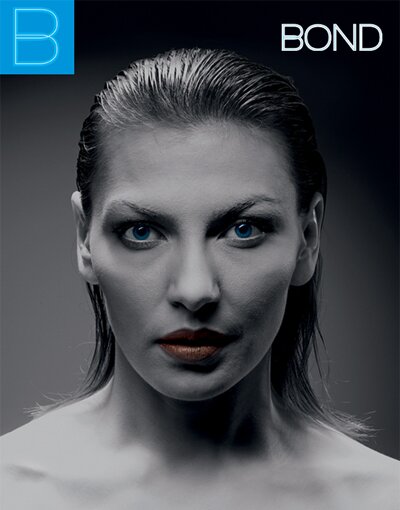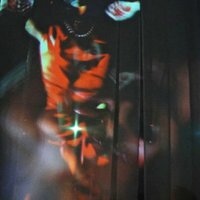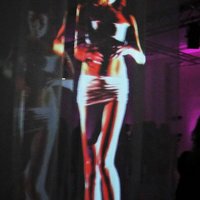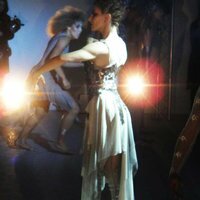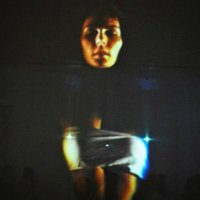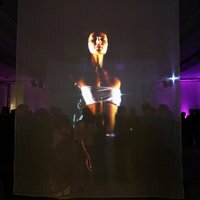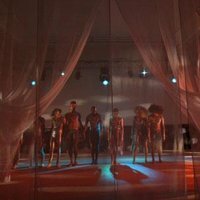saatchi gallery in london
bond magazine project
IGOR KALINAUSKAS IS A SEEKER AFTER TRUTH, A PHILOSOPHER AND A KALEIDOSCOPIC ENIGMA WITH A MAGICIAN’S CABINET OF ACCOMPLISHMENTS, FROM PSYCHOLOGY TO THEATRE, MUSIC AND PAINTING.
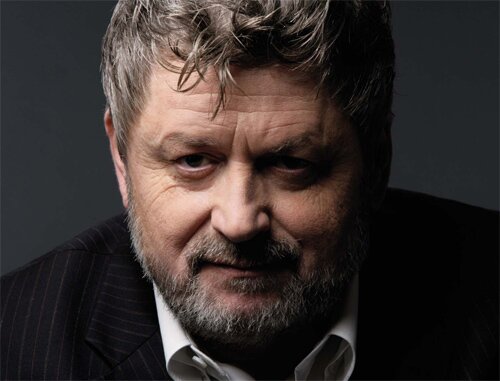
Igor Kalinauskas is a man accustomed to personal power. His short, grey beard and his gift of complete, intense focus add up to a weighty presence. He is animated, his face intelligent, mobile and engaging. His energy, when it’s needed, comes on like a turbine. He makes a point by leaning close to conjure an intimacy, or by gesturing with his hands, quite large hands, to make an emphasis.
“One plays, or one is played,” he says. Plenty in Igor’s branch of psychology is about games and game playing, and two of the books of psychology that he has written are expressly on the topic of games. These are entitled Games Played by ‘I’, and Games Played by ‘We’.
It is necessary to compete with yourself, to compete with the inner inertia
that can hold you back and prevent you from changing.
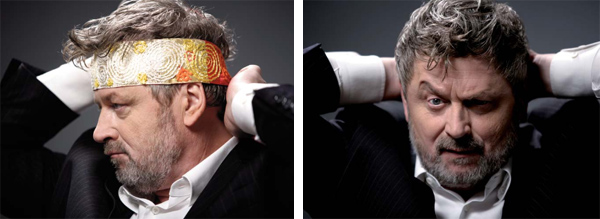
Igor is still as he speaks, maintaining contact through his twinkling, saturnine gaze. “It is necessary to compete with yourself, to compete with the inner inertia that can hold you back and prevent you from changing, when we live in a changing world. Understanding that competition is a social contest for resources, it is necessary to strengthen one’s professional, psychological and emotional resources.”
This man is a musician, a painter, a theatre director, an esoteric philosopher and a psychologist, practicing in a discipline which he himself developed as a branch of socionics. The roots of his philosophy are widespread, and they have led him to some very striking principles.

“Observe as a merciless realist. Relate as a merciless romantic. This is really my life motto and I follow it. Regularly I try to maintain a balance of romantic intentions with realistic efforts to bring about their realisation.”
We all are searching for ourselves inside ourselves, and ourselves in the world.
Kalinauskas has authored and published at least 10 books, on subjects including psychotherapy, philosophy and spirituality. “In my books I try to offer ways that one can realise one’s active life position, and ways to enable the creative development of the intellect,” he explains. “I definitely believe that every human being possesses huge inner resources which, when they are activated, can help him to overcome external conditioning, to realise spiritual development and achieve social self-realisation. “The skills that I have gained through practical psychology and by studying information metabolism have helped me to work at a high intensity, and with a high output. I adore professionalism in any field, and so I strive to be deserving of the acclaim of professionals and experts. Prizes and rewards – I have quite a lot of them – they are flowers that decorate my career.”
The path of Sufism has been a subject of considerable study for Kalinauskas. “I spent 18 years studying with a Sufi master, and that study helped me to discover my own path, which is to demystify esoteric knowledge and to illuminate it so that people can use it to find a path to themselves, without having to rely on an external ideology.” His charm switches on like a beacon. “My practice is my life. The guiding principle is to occupy any external spaces with your inner energy. Knowledge without love can't generate faith, and love without knowledge can't generate truth. From my point of view, faith is a deliberate devotion, which is only possible to endure by a combination of knowledge and love. Love is energy for faith, and knowledge is its content.”
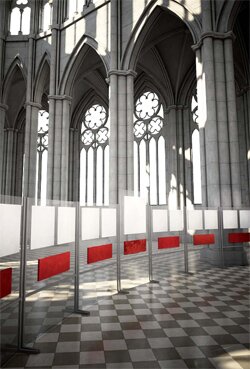
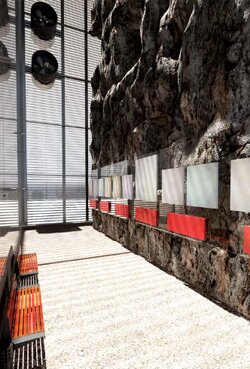
Kalinauskas has a look of the lion in winter, but something childlike is still bubbling behind his winning smile. Psychotherapy connects to philosophy and spirituality, all the way back to Carl Jung’s writings, and Jung is at one corner of the foundations of socionics. Socionics is a theory of information processing and personality type, with roots in Jung’s theories of typology, and in Kepinski's theory of information metabolism.
Socionics as a form of psychotherapy is well-established in post-Soviet states, although the West has yet to catch up with it completely. Kalinauskas and other socionics practitioners connect regularly with the international psychotherapeutic community, particularly through movements and disciplines like the transpersonal, with whom they share much common ground, notably their affinity with sufism.
“Socionics enables the prediction of informational and behavioral reactions to various life situations. I use the development of socionics that I have named ‘functional socionics’. It is used to track the automatic or habitual reactions to information, and fix them, where necessary. Further, it is used to build effective teams, and to improve one's performance in social groups. Socionics is often used through games for adults. The game will be to discover ‘Who are you?’ in terms of personality types, and ‘How will you function in a team with this type?’ In this situation, maybe this type would make a better match for you.”
Kalinauskas’ development of Differentiated Functional States (DFS) came after his study with the progenitor of socionics, Aushra Augusta. It employs the thorough analysis of sets of types which Igor has refined, and can make use of Kalinauskas’ Wheel, a diagram which he has developed of relationships between types.


“When I meet someone for the first time, I try to establish a resonant relationship with them, so that through our mutual emotional experience, I can discover their subjective world, and the subjective world of the two of us in combination. In my opinion, this is very important in private life and personal relationships. With relationships in business, all of the practical skills of psychology can be useful, although I prefer to build confidence with the other parties.”

Igor has used socionics to train athletes, and helped them towards obtaining their best possible performances, dealing with the rigours of extreme personal discipline. Members of the Russian and Ukranian athletic teams are among his clients.
“I taught athletes to achieve a state of supreme self-control, which allowed them to achieve the absolute maximum possible results. Additionally, I devised emotional sustainability training, to maintain control in stressful competitive events and public occasions.”
At another reach of the therapeutic practice, Kalinauskas has provided therapy for people in a different kind of extreme situation. Igor has used his therapy to assist survivors of the nuclear disaster at Chernobyl. “People who suffered in the Chernobyl nuclear emergency needed their emotional sustainability strengthened, and relief from the neuroses which the stress had left them with. I gave them sessions to help them to develop skills to enable them to take control of their energy and emotions,” he explains.
Igor has alternate identities for his paintings and for his singing. As a painter, he is Igor Niklajevich Kalinauskas – INK. In this guise, his minimal and spiritual paintings are highly prized and much sought after.
Life can be theatre, if you are in position to play yourself live.
His collection of paintings called The Magician’s Cabinet, a group of mystical and spiritual images, was used for some time in his psychotherapeutic practice, as points of contemplation and as images through which to gain insight. He recently exhibited them to some acclaim. “Any form of art is an expression of the artist's inner world. Here is my inner world. I am being as honest and as direct as I can with it, to myself and to other people. I think that we all are searching for ourselves inside ourselves, and ourselves in the world.” Dr Algis Uzhdavinis of the Lithuanian Institute of Culture, Philosophy and Art, has said that INK’s paintings, “satisfy the human thirst for inner peace”.


“When I paint pictures and sing I am in a condition of being fully focused on creative origins, but there is a difference in the emotional experiences. A painter is face to face with a canvas. You can work with a painting wherever you wish and how long you wish. Then, it will be gone to somebody else, and it will be living a life separate from its author. A concert is the here and now, in the presence of that audience at that exact time. There is no way to amend it or postpone it. Our concerts are live improvisation, and so each concert is unique. As a painter I draw what I see in myself, and what I see around me, and I enjoy it very much. Through my paintings I am trying to witness the space of my subjectivity. The interest in my paintings may be caused by the increasing interest of people in their own inner world and my paintings help them to enter this world.”
With Duo Zikr, Igor’s singing identity is Igor Silin. The duo use the ancient techniques of throat vibration and circular breathing to achieve their deeply soulful improvisations, often with a choir. Igor and Olga Tkachenko have been singing together as Zikr for 20 years. New York music magazine Billboard said, “Apart from dynamic improvisations making the visitors experience unique feelings, there is one more thing about the duo. That is an astonishing attraction of the passion in the very voices and the manner of the performing.” They began singing together at Igor’s Fireflower drama school. Igor said, “Zikr is an Arabic word meaning ‘prayer’ or ‘talking with God’. Vibration techniques of voice-making like ours exist in cultures all over the world, and have very long traditions. We are often invited to give performances in Catholic cathedrals. Our music is an expression of our souls.
“Olga and I met in Kiev when we worked together in my theatre studio. Both of us have a background in the theatre, and we think of our voice work as vocal theatre, and our concerts as vocal plays. We worked well together due to the DFS methodology and our common love of the capacity of human voices. For 20 years we have done this, because of our love for the music, the joy of creating together. The pleasure encountered with the audience. We have an ideal creative partnership.”
As a theatre director Igor has again a distinct identity, as Igor Nikolaev. In that role, he has had theatre studios in Daugavpils, Kaluga, Vinius and Kiev. “I have worked with a number of theatre studios, and I took the opportunity to apply what I had learned from my studies of esoteric texts and practical psychology. Life can be theatre, if you are in a position to play yourself live. If, that is, you can create your own role from your personality, and can act effectively in the social situations that you encounter. While performing, an actor discovers the true treasury of the subjective world of a human being. A theatre director on the other hand, sees the logic of a chain of events, and at the same time learns to create situations that are persuasive for others, for the audience.”
Work is a game, and the outcome is determined by professionalism.
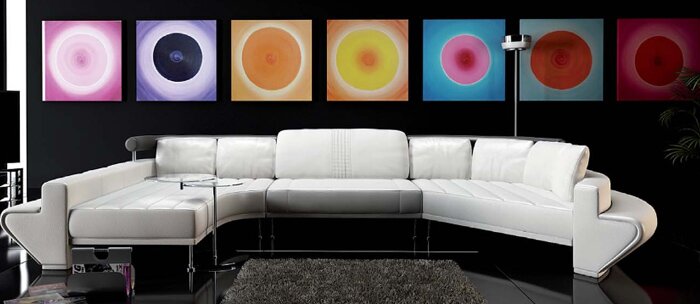
We can’t leave without just one more of Igor’s darkly beguiling pronouncements: “If work hinders your spiritual progress, it means you work too little.” To elaborate just a little, he says, “It means that it doesn’t really work to excuse a lack of effort in spiritual development by saying that work gets in the way. Work is a game, and the outcome is determined by professionalism.”
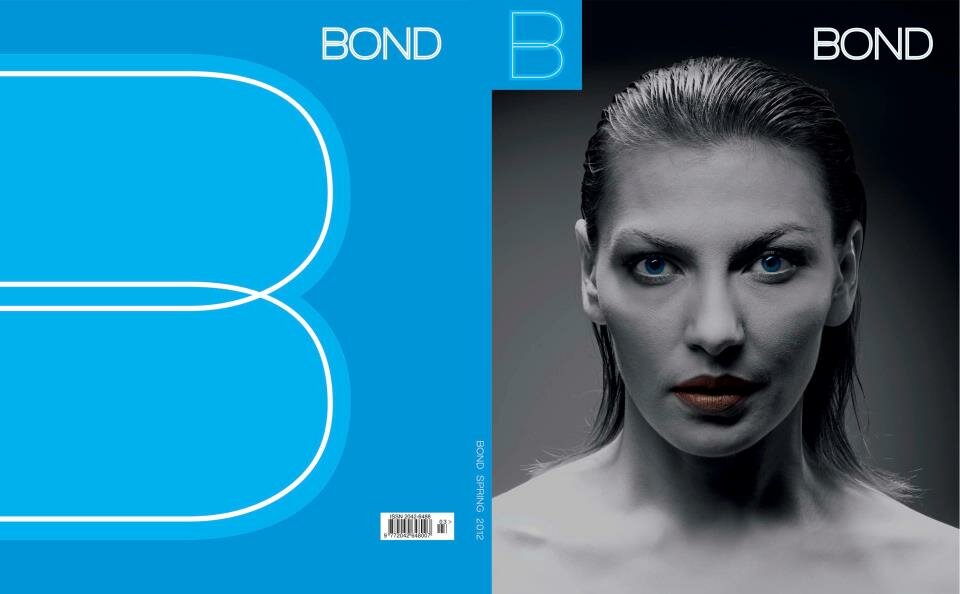
As part of Russian Art Week, The Gray Circle was commissioned to create the film installation REBIRTH for the Bond Magazine event Synchronic Portrayal at the Saatchi Gallery London. A multi-projection, multi-layered transparent screen interactive installation.
REBIRTH: Dreams & Memories is a portrait film installation, an exploration into the world of model, actress and dancer Anna Onli expressing multiple facets of her personality both real and imagined. As guests pass between the layers of the installation, drinks in hand, they are surrounded by floating images, enveloping them in an evolving world of dreams and memories.
Later, the installation was transformed into a contemporary dance piece: The Enigma by U:3D, Union Dance, before finally becoming a three dimensional portrait gallery.
The Grey Circle - Rebirth: Dreams & Memories
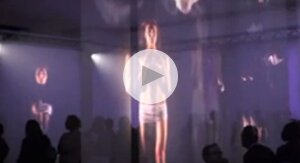
Enigma (Bond Magazine, Saatchi Gallery, London, UK)

In collaboration with Anna Onli (dancer, model, actress)
www.bondmagazine.biz
